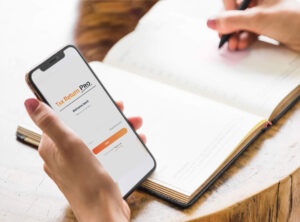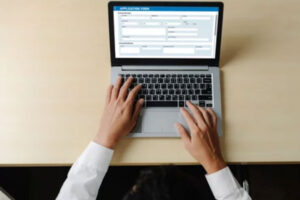Our Partners
How it works

Step 1.
Your Portal
Register to create your own secure
TaxReturnPro.ie portal.
Step 2.
Your Tax Agent
Sign the Tax Agency Form (A2) which allows
us act on your behalf and access your account on ROS. You just sign online, we take care of getting it to Revenue.


Step 3.
Your Details
Fill in your details on your portal so we can figure out what tax refund we can secure for you.
Step 4.
Your Submission
We will submit your Refund application to Revenue only for the years which you are due a refund.


Step 5.
Your Refund
When we receive your refund, we send it (less fees and VAT) to your bank details on the same day. If you have a Revolut account, it will be there in seconds.
FAQ frequently asked questions
Yes, Tax Return Pro is a registered Tax Agent with Revenue Commissioners. Our Tax Advisor Identification Number (TAIN) is 80694O
Our standard Fees are 10% + VAT of your refund, subject to a minimum fee of €50 + VAT per year. If there are NO REFUNDS, there are NO FEES.
However, if you have been provided with a discount code, by using this code you will receive significantly lower fees. You can see this by entering the code when registering.
We can be contacted by email to help@taxreturnpro.ie and we aim to reply to you within one business day.
Currently, Revenue allow you to review the previous 4 years only.
In the event of you having a tax liability. We will not proceed the file this tax year. If we are reviewing multiple years and file only years where refunds are due, we cannot guarantee that Revenue will not manually review all 4 years.
Once we have received your application, we aim to issue your refund to you (if any) within 10 days.
Your refund will be transferred to you by bank transfer to the nominated account you supply when completing your application.
Our platform has been built using bank level technology standards and all data is encrypted in transit using TLS 1.2. All customer data is encrypted at rest using AES 256.
We do not share any of your data to anyone except to Revenue as part of your tax return.
We do not require your receipts to process your tax refund. However, you are required by Revenue to retain evidence of your claims for 6 year should you be requested to provide same. For your convenience you can save these receipts on your portal using the file upload feature.
Yes, we can assist you in preparing and filing your return. For a quote, please email hello@taxreturnpro.ie
No, having Tax Return Pro as your registered tax agent will not effect your own access and capabilities on myAccount.
We will never automatically review a tax year for you without your instruction. However, we will send you reminders to complete our form to secure the best possible refund for you.



